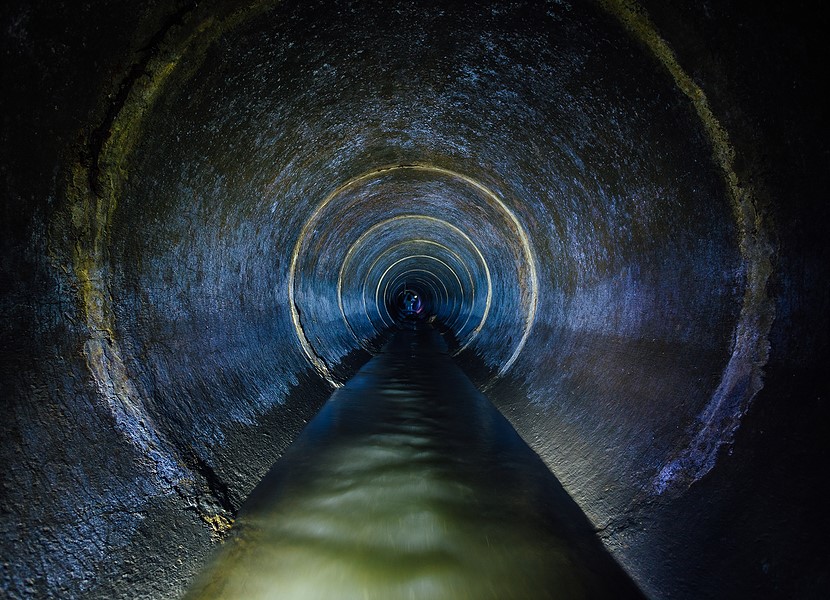News
What Is Northumbrian Water Doing To Improve Water Quality?
Water quality around the UK is a topic under much discussion these days, with supplies at risk from a range of different pollution sources, including agriculture, urban environments, storm overflows, wastewater, sewage treatment works, transport runoff and so on.
In the north-east of England, water supplies are delivered by Northumbrian Water, with the company’s overall performance rated as average by industry regulator Ofwat relative to other firms in the sector.
For the 2023/2024 year, the firm emerged as a top performer when it came to reducing internal sewer flooding, receiving three out of four stars for its environmental performance assessment.
Furthermore, Ofwat judged that Northumbrian Water was displaying reasonable levels of ambition to drive further improvements, challenging itself over the next five years to 2030… with the watchdog requiring, under its final decision, to deliver significantly improved levels of service for both the environment and its customers.
Ofwat now wants to see a 28 per cent drop in storm overflow spills to reduce the average spill number per overflow to 14, while investing in 159 spill reduction schemes and investing £387 million to prevent nutrient pollution.
Additionally, the utility firm is also expected to reduce leakage rates by seven per cent, while investing £118 million to support this… essential given that business consumption is expected to increase by 20 per cent come 2030.
And £57 million is to be invested to improve drinking water quality through lead pipe replacement and the prevention of raw water deterioration.
Direct action
Northumbrian Water does appear to be taking its environmental responsibilities seriously, with 16 key goals now in place to keep rivers, lakes and streams in the best condition possible.
To help facilitate this, four clarifiers at Warkworth Water Treatment Works have just been refurbished (March 13th) as part of a £3 million investment in the site, ensuring that sediment and other impurities continue to be removed from raw water at the start of the treatment process.
This will help protect both the quality and resilience of water supplied from the site, as well as driving up the amount of water that can be produced. Additional enhancements to the connected water network are also in the pipeline later in the year.
Project manager Victoria Jobling said: “The clarification process is key to us being able to deliver clean, clear and great tasting water to our customers every day.
“This investment not only means we can continue to do this for people across Northumberland, but it means that we can increase the site’s capacity, supporting increased demand in the area, now and in the future.”
Elsewhere, the focus has been on improving the health of the River Tyne, with 22 organisations from across the region coming together to form the South Tyne Holistic Water Management Project, which started in April 2020.
To help address the issue of fine sediment inundation, grants were offered to organisations, farmers and landowners for water efficiency and river restoration schemes, farmyard and track improvements, habitat creation, tree planting and slow-the-flow measures.
The five-year project has met with such success that the water supplier intends to continue with it in the North Tyne catchment, supporting river restoration schemes across the entire region and cementing the fact that environmental improvements are one of the biggest priorities for Northumbrian Water, addressing water quality and reducing the amount of treatment required before delivering clean water to local communities.
And in County Durham, water quality is being protected and sewerage services shored up via an £11 million project that has just been completed, including the construction of a new 6km pipeline and upgrades to treatment works and infrastructure in the local area.
It took approximately 18 months to complete the work, with the aim being to prevent treated water from entering Blackdene Burn and instead entering the Wear at Brasside, a move that will improve water quality and protect the environment.
Project manager Paul Davison said: “These upgrades to our network and treatment work sites deliver environmental protection to the Blackdene Burn and futureproofed our wastewater services in the area.
“They have also paved the way for the future investment that will further protect the environment through efficiencies and increased capacity that will cater for local population growth and the increase in wastewater that this will bring.”
Customer bills
To help Northumbrian Water deliver its performance commitments and legal obligations, Ofwat’s final decision provides it with a total expenditure allowance of £6.1 billion over the next five years, £2.5 billion more than it was provided for the current price control period.
The investments that are now underway will be recovered through customer bills over the long term, but planned expenditure must be financed first by attracting investment from debt and equity providers.
Ofwat’s final decision allows the utility company to collect £5 billion through bills from businesses and households between now and 2030, recovering a share of the cost of historical expenditure and some of the £6.1 billion due to be spent between 2025-2030.
Ultimately, this means that average household bills will climb by £87.
